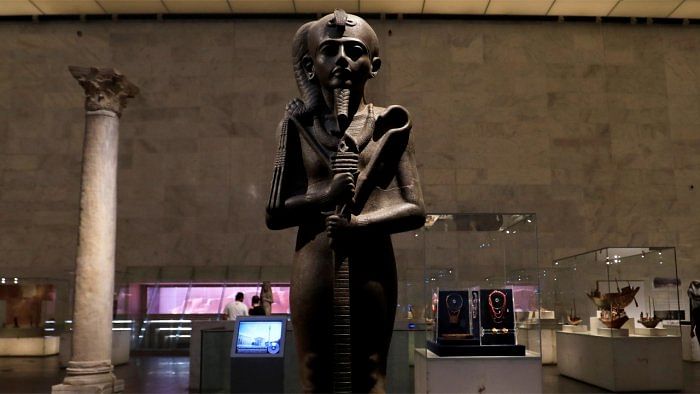
Clutching his passport and ticket to Seattle, Waleed Salem had a sinking feeling he would be prevented from boarding his flight from Cairo because of his academic research. His hunch proved right.
The political science doctoral candidate at the University of Washington had already tried to fly out in May last year to see his 13-year-old daughter but authorities confiscated his passport and he missed the flight.
Last month, "I went with the knowledge that I might be turned back ... I was optimistic but without any certainty. I've done nothing wrong so I shouldn't be worried," Salem told AFP, after he was stopped again.
Salem, who was doing fieldwork on how courts have tried to resolve political disputes in Egypt and Pakistan since the 1950s, was arrested, blindfolded and handcuffed for five days in May 2018.
He was later accused of "joining a terror group" among other charges.
"At the national security prosecution, I was asked about the intricacies of the thesis. Who was my supervisor? What were the chapter titles? Who did you meet? They told me basically: 'You're saying the judiciary is politicised,'" he explained.
He had already spent over six months in Egypt's notorious Tora prison before being released in December 2018 on probation, having to report to a police station twice a week.
"I cannot wrap my mind around the unspeakable cruelty of preventing me from seeing my daughter for over three years for no reason. No one ever has given me a reason for all of this."
Ilyas Saliba, a research fellow at the Berlin-based Global Public Policy Institute, said academics were vulnerable.
"In a country in which the security services aim to control public debate on political issues, scholars who contradict the official state narrative can quickly find themselves on the target list," he said.
Under the rule of long-time autocrat Hosni Mubarak, Egypt's academic freedoms were already restricted but they have narrowed dramatically since President Abdel Fattah al-Sisi took office in 2014.
Egypt ranks in the lowest group on the Academic Freedom Index.
"An array of legal and regulatory changes aimed ... at increasing political control" has led to a deterioration of freedom to teach and research, said Saliba, who co-authored the latest index.
The interior ministry did not respond to AFP's requests for comment on researchers jailed.
Patrick Zaki, who took a quick break from postgraduate studies at Italy's Bologna University to see his family, was detained upon arrival in Cairo in February 2020 and promptly jailed.
"I pleaded with him to come because I missed him. He's my elder son and I have a close relationship with him. I just wanted to see him for a few days. I blame myself that I made him come," Zaki's mother, Hala Sobhy, told AFP.
Zaki's detention revived painful memories of the disappearance and murder of an Italian researcher in Cairo five years ago.
The badly mutilated corpse of Giulio Regeni, a Cambridge University doctoral student whose thesis examined labour unions in Egypt, was found on the outskirts of Cairo eight days after his disappearance in January 2016.
Last month, Rome ordered the trial in absentia of four senior Egyptian security personnel implicated in his murder. Cairo has resolutely refused to hand them over.
Thousands in Italy have signed petitions calling for Zaki's release, and the country's senate in April voted to grant him Italian citizenship to receive consular support.
Sobhy's son is languishing in jail charged with "harming national security" and "incitement to overthrow the state". His detention has just been renewed for another 45 days.
"When I imagine his confinement, I feel like I'm suffocating ... We thought he'd be jailed for a few weeks, but it has gone on for over a year," she said.
In a similar case, Ahmed Samir, a master's student at the Central European University in Vienna, also came to Egypt on a family visit and was arrested in February.
He has been accused of "broadcasting false news" and is due to appear in a state security court again next week.
Other young Egypt-based researchers have also been detained, including Kholoud Amer, head of the translation unit at Alexandria Library, and Shaima Sami, a Cairo-based researcher with the Arab Network for Human Rights Information.